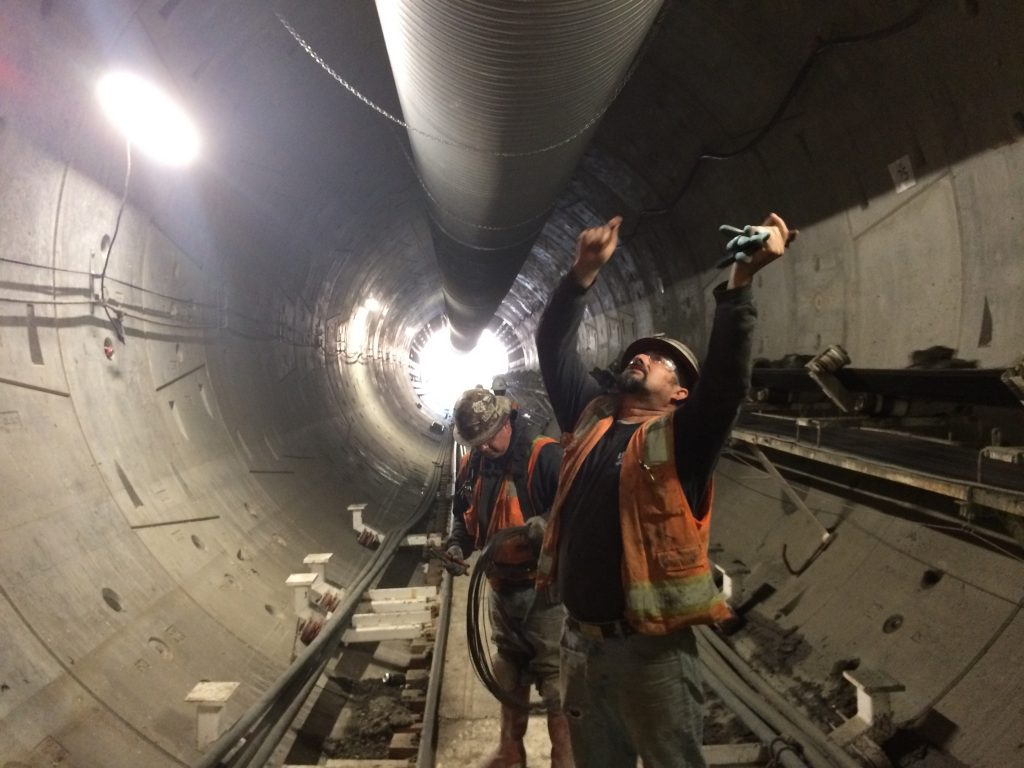 Short answer: no. At least not the way they’re currently presented, as a single-track option for private vehicles with solo drivers. It’s the equivalent of building new roads on the surface: once you build them, traffic quickly increases to fill them.
Short answer: no. At least not the way they’re currently presented, as a single-track option for private vehicles with solo drivers. It’s the equivalent of building new roads on the surface: once you build them, traffic quickly increases to fill them.
However, if the tunnels improve their efficiency by squeezing more people into the vehicles, such as through shared rides or right-sized “pods” for individuals, then Musk’s tunnels could provide a significant benefit. But of course at that point they start to look exactly like a subway car, only with the cars replaced by Teslas.
Perhaps for this reason, many transit advocates are heaping scorn on Musk’s plan. They were also predisposed to resent Musk personally because he has criticized public transit in the past and has revolutionized passenger vehicles through battery electric technology, which some transit advocates mistakenly view as a threat to political support for expanding transit.
For my part, I don’t think it matters if Musk’s plan fails, since it’s a completely private venture. And if it succeeds, the public will benefit in multiple ways: from improved tunneling technology to new capacity to move people (albeit only those who can afford it) faster across town.
But I do have some “red lines” for my overall indifference to the venture:
- No public dollars should be spent on the project, unless there are commensurate public benefits. Essentially, the tunnels would have to be affordable to all and accessible to those who can’t afford a vehicle (i.e. function like traditional public transit).
- No public giveaways in terms of subsurface land rights. The tunnels should have to compete on a level playing field with public transit tunnels, in terms of these types of land costs. I’m otherwise okay with waiving some environmental review (i.e. transportation, aesthetic, and parking impacts, among others), as I would be with any other public transit tunnel.
- The tunnels should not interfere with public transit tunnels. That means the tunneling shouldn’t prevent future subway tunnel extensions, and the ingress and egress for the tunnels shouldn’t impede bus lanes and pedestrian access to transit, as well as critical transit-oriented development.
As long as the venture doesn’t cross those lines, I wish The Boring Company and Musk success and will hope for positive spillover for the general public. And I also wish that they fulfill the original vision of right-sized, shared vehicles in the tunnel that increase efficient use of space and decrease incentives for solo driving.
Given Musk’s commitment to averting climate change, that’s a vision I think he’d support.
One thought on “Can Musk’s Private Tunnels Replace Transit?”
-
Pingback: Today’s Headlines – Streetsblog Los Angeles
Comments are closed.


